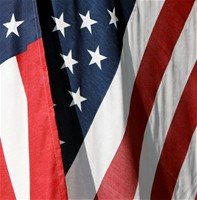
My annual ritual. The start of the H-1B nonimmigrant visa filing season is once again upon us. And once again, immigration practitioners around the country are having increasingly more difficult conversations with their clients who wish to hire foreign nationals into what are called “speciality occupation” positions. Last year, after President Trump signed an Executive Order on April 18, 2017 entitled “Buy American, Hire American” (“BAHA”), the conversations became very different from previous years. This year it seems even worse. Let me explain.
The purported purpose of the “Hire American” portion of BAHA is to create higher wages and employment rates for U.S. workers, and to protect their economic interests by rigorously enforcing and administering the laws governing entry of foreign workers into the United States. President Trump specifically highlighted the H-1B visa program, directing the Secretaries of State, Labor, and Homeland Security, as well as the Attorney General, to suggest reforms to help ensure that H-1B visas are awarded to the most-skilled and highest-paid foreign workers.
As always, a (reminder) primer is in order. The H-1B nonimmigrant visa is a temporary visa that allows employers to petition for highly educated foreign professionals to work in “specialty occupations” (e.g., architecture, engineering, mathematics, physical sciences, social sciences, medicine and health, education, business specialties, accounting, law, theology, and the arts). These positions typically require at least a bachelor’s degree or the equivalent for entry into the field.
Notwithstanding what you read in President Trump’s “fake” tweets, before an employer can file an H-1B petition with U.S. Citizenship and Immigration Services (“USCIS”), the employer must first take steps to ensure that hiring the foreign worker will not harm U.S. workers. First and foremost, employers must attest, on a Labor Condition Application (“LCA”) filed with and certified by the U.S. Department of Labor (“DOL”), that employment of the H-1B worker will not adversely affect the wages and working conditions of similarly employed U.S. workers.
An executive order cannot modify existing statutes or regulations. However, BAHA does clearly direct the above-referenced agencies who administer immigration programs to approach their administration obligations from an enforcement standpoint rather than as providing a service to those parties that they regulate. Consequently, a number of agency memoranda have either been issued or repealed since BAHA was signed by the President.
In 2018, practitioners saw how BAHA would play out in real time. Quite simply, as a result of BAHA, employers, their current / prospective employees and their attorneys are being besieged by requests for evidence (“RFE’s”) from USCIS. According to The Wall Street Journal, “the administration is more closely scrutinizing applications for the high-skilled visa program known as H-1B, sending back more than one in four applications between January and August [of 2017] via “requests for further evidence,” according to data from [USCIS], which administers the program. A year earlier, fewer than one in five were sent back.”[1]
In terms of my own practice, and anecdotally what I am hearing from virtually every colleague of mine that practices in this area, these RFE’s are making requests that we’ve never seen before, including questioning the prevailing wage classification and level selected on the underlying LCA associated with the H-1B petition, and also questioning whether the position requires at least a Bachelor’s degree in a specific educational specialty.
Specifically, USCIS is taking the position that a Level 1 wage, as a general matter, cannot support a claim that the offered position is in a “specialty occupation.” Alternatively, the RFE’s often claim that if a position is sufficiently complex to be considered a “specialty occupation”, then it cannot have a Level 1 wage associated with it. Some RFE’s make both arguments and then ask the employer-petitioner to essentially prove the impossible.
And, where at first we starting seeing these RFE’s in specific types of case (e.g., software developers, computer systems analysts), we are now seeing them issued in a wider array of occupations, including engineers (e.g., civil, mechanical, industrial, etc.), lawyers, dentists, teachers, physicians, and accountants/auditors.
Mercifully for our clients we have been able to successfully overcome these RFE’s, but now without a lot of extra time and effort put into the case that, given the existing regulatory framework and case law, seems absolutely unnecessary. These RFE’s have added substantial expense and uncertainty to the H-1B process. The result is that it discourages immigration without making any formal policy change. This needs to change.
[1]http://www.wsj.com/articles/trump-administration-tightens-scrutiny-of-skilled-worker-visa-applicants-
1511114338.
